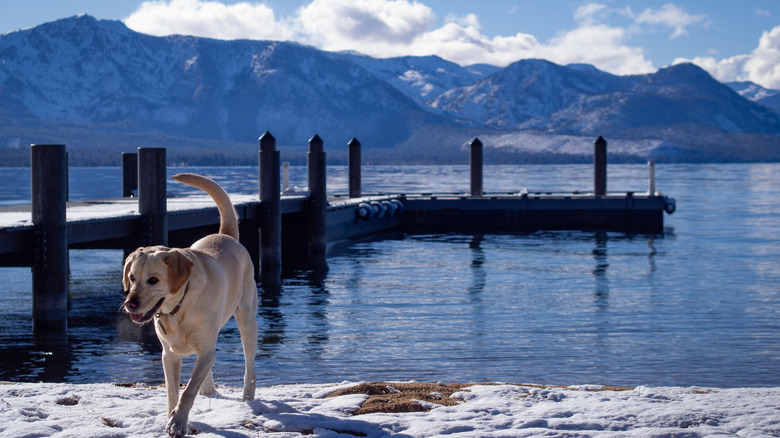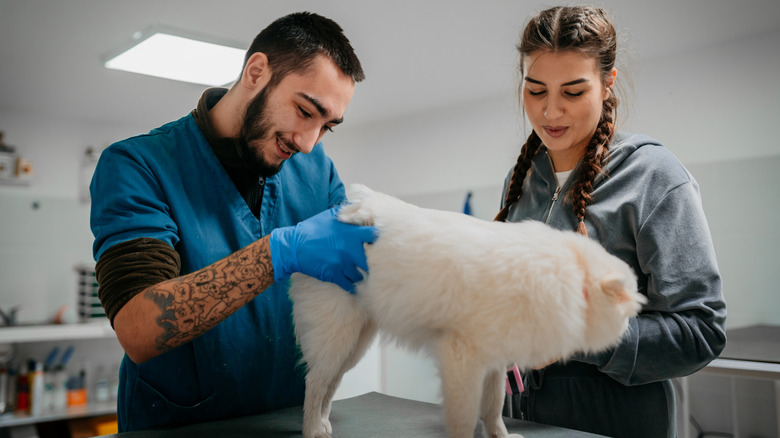The Scary Truth About Fleas That Every Dog Owner Should Know Before Lake Tahoe Trips
Dog parents, listen up: before you clip on the leash to embark on a picturesque Lake Tahoe road trip, you need to know the dangers that fleas might pose in the area. As reported by ABC News, a South Lake Tahoe resident recently tested positive for plague after what officials believe was a bite from an infected flea while camping. Yes, you read that right: the plague. The same disease that devastated Europe centuries ago, still shows up today in certain parts of the U.S. — and Lake Tahoe is one of them.
The case, confirmed on August 19, 2025, has health officials reminding visitors that the bacteria responsible for plague, Yersinia pestis, lives on in rodent populations, especially squirrels and chipmunks, in high-elevation areas (via CDC). "Plague is naturally present in many parts of California, including higher-elevation areas of El Dorado County," Kyle Fliflet, the county's acting director of public health, said in a statement on El Dorado County's official website. "It's important that individuals take precautions for themselves and their pets when outdoors, especially while walking, hiking and/or camping in areas where wild rodents are present."
County health officials have even shared that 41 rodents tested positive for exposure to Yersinia pestis between 2021 and 2024, with four of those registered in the first eight months of 2025. In addition, the CDC also warns that our pets can carry fleas home after a day of hiking — inadvertently bringing the disease into our homes. While cats are particularly vulnerable to plague, dogs can still be part of the chain of transmission.
Make sure you and your pet are prepared
This doesn't mean dog owners need to cancel their trips or stay cooped up inside. It's clear how special it can be to bring your dog along on a trip to reconnect with nature on scenic hiking trips, by campfires, and with lake swims — especially in a place as magical as Lake Tahoe. However, this does mean that you'll need to take some practical steps to keep yourself and your pets safe, just in case you happen to cross infected fleas' path.
First and foremost, make sure your dog is up to date on their flea prevention. Topical treatments such as Frontline or Revolution, oral medications like NexGard or Bravecto, and flea collars (Seresto is a popular brand) all provide strong protection. If you're unsure about what to choose, your vet can recommend the best option depending on your dog's size, age, and health.
If you do get the opportunity to visit Tahoe with your furry friend, avoid letting them stick their nose into rodent burrows or chase chipmunks, no matter how tempting it might be for them. You'll also want to keep them leashed, especially around campsites where rodents are more likely to live, and make sure you use repellent sprays on yourself to discourage fleas from hopping onto your socks or pant cuffs. If you notice your dog scratching excessively or acting lethargic after the trip — or if you or your pet develop flu-like symptoms — call the vet and your doctor immediately, and don't make contact with other people or animals. Antibiotics can save your and your pet's life, but you'll need to act as soon as possible.

